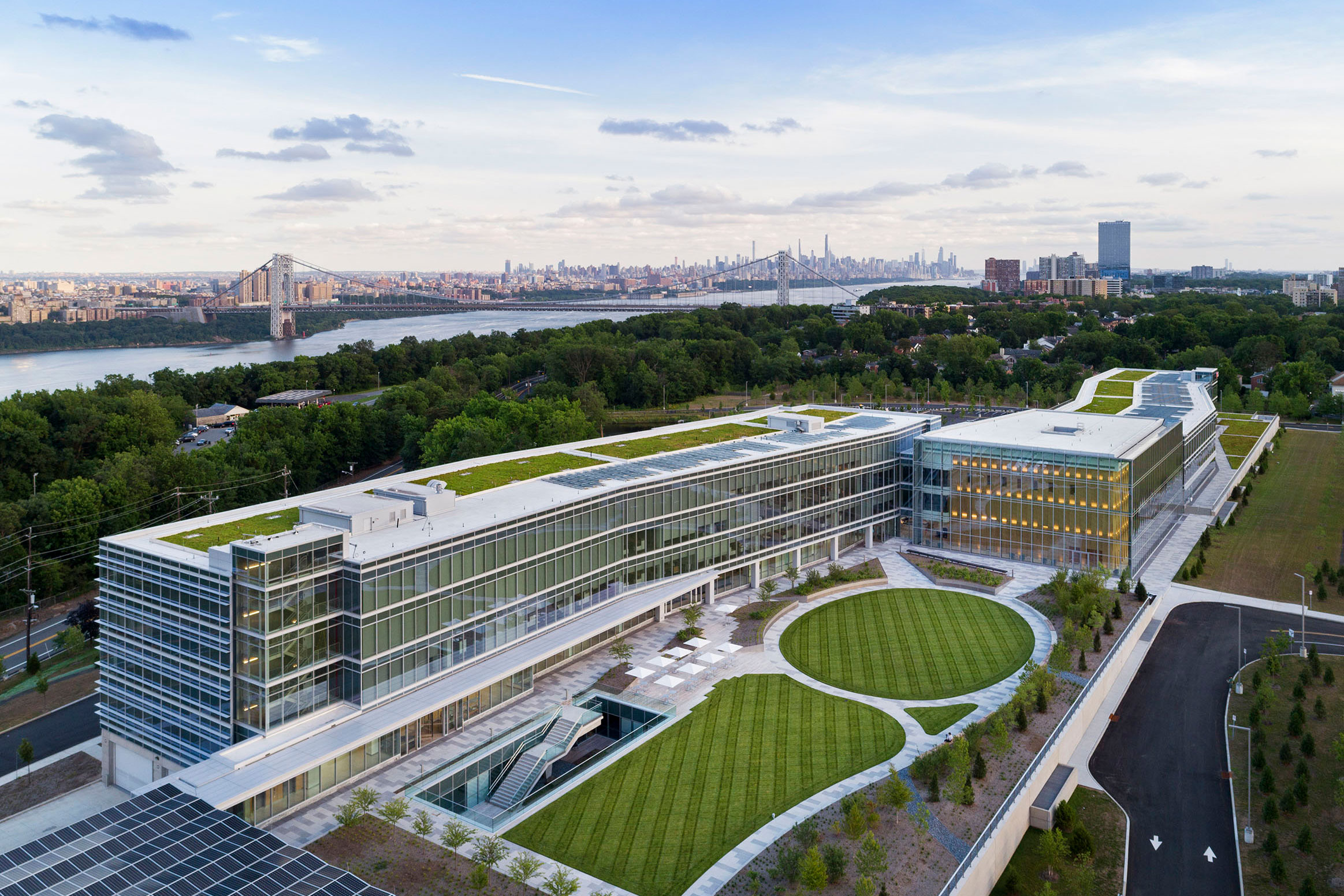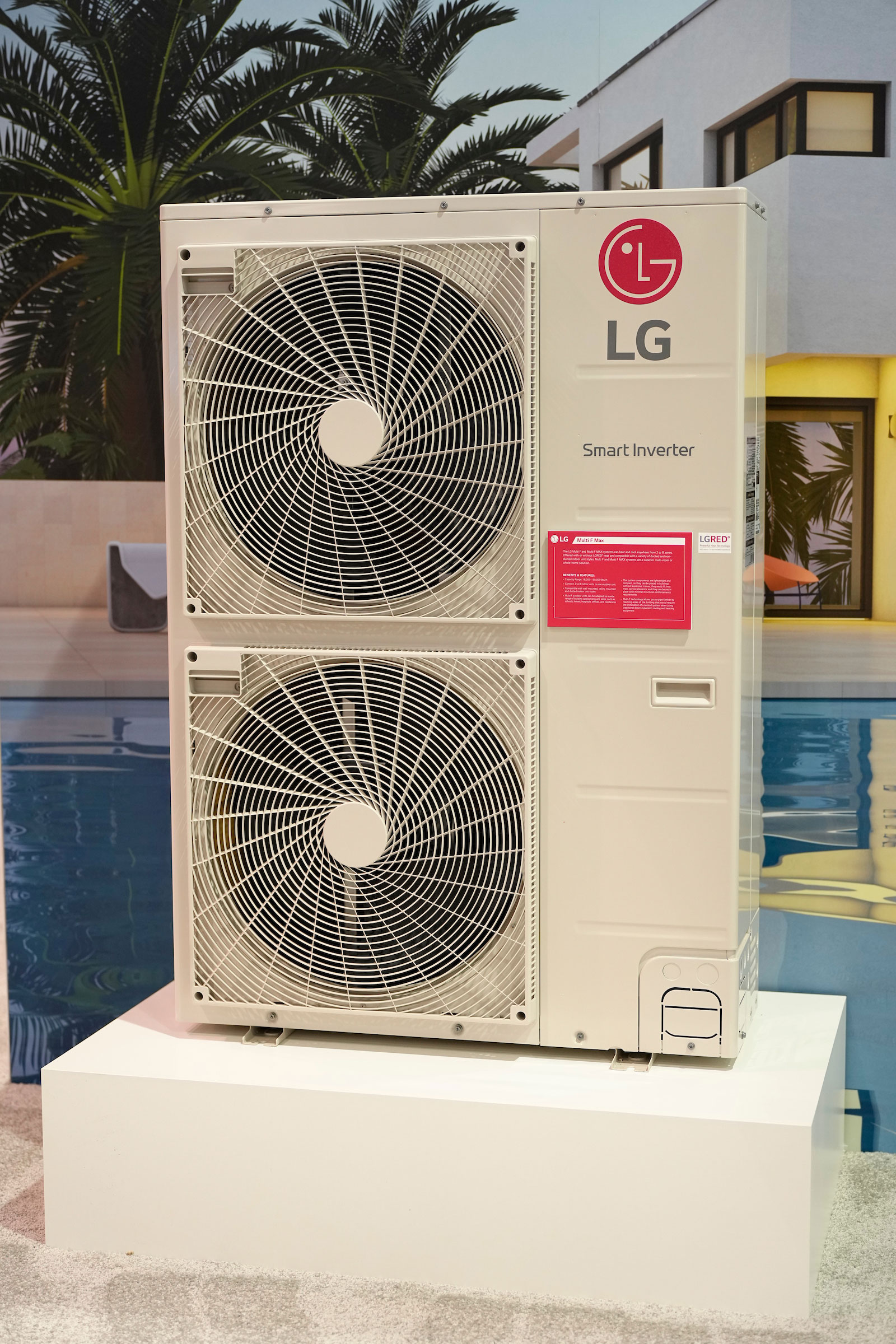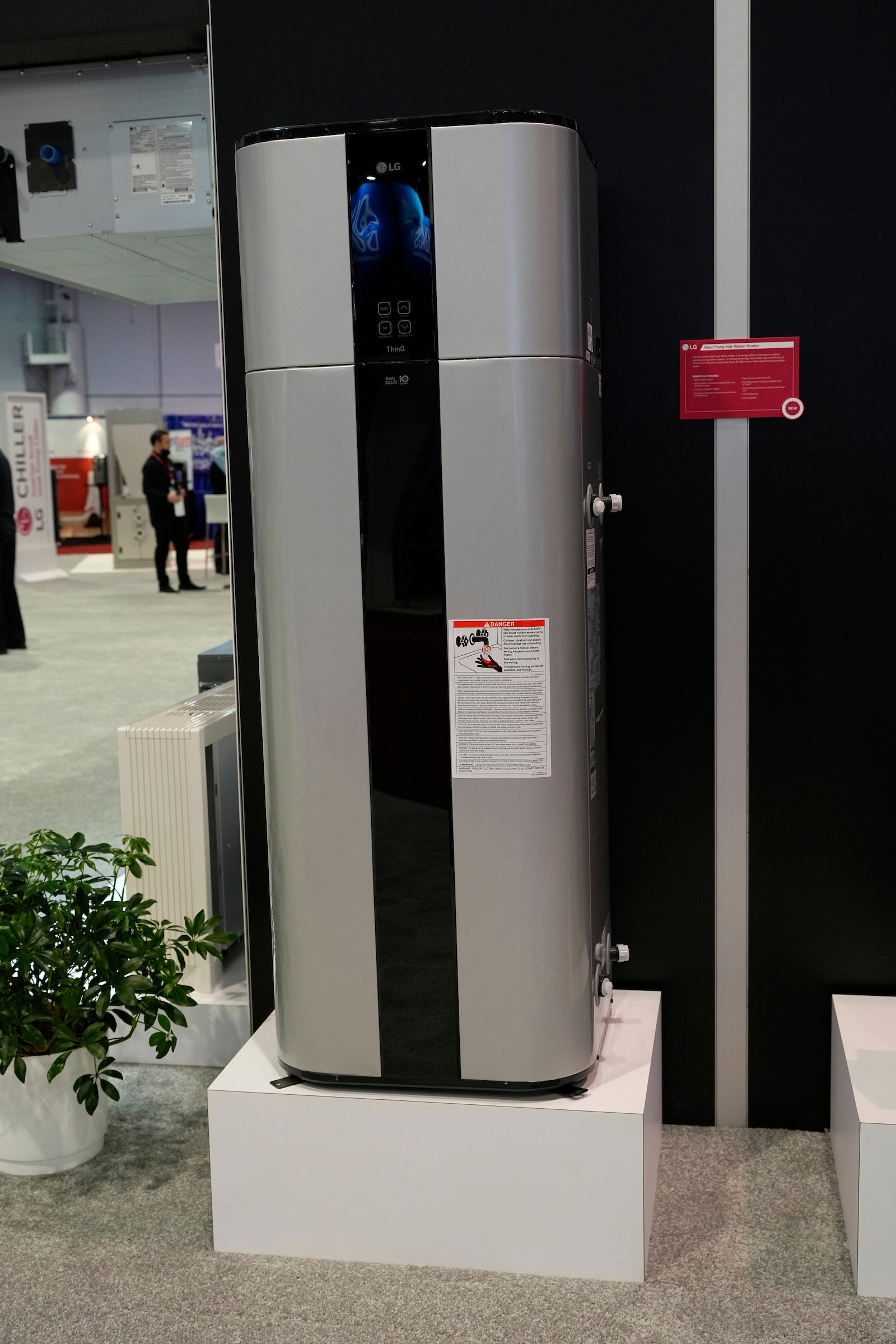Story at a glance:
- The AHR 2022 Expo showcased the HVAC industry’s move toward a carbon-neutral future.
- Improving indoor air quality and reducing carbon emissions through electrification were among the expo’s biggest topics.
- LG Electronics Air Conditioning Technologies USA, a leader in the US market, debuted product solutions aimed at alleviating these pain points.
Each winter leaders from across the HVAC industry—from manufacturers and distributors to contractors and engineers—convene at the AHR Expo to share ideas, cultivate relationships, and drive innovation within the heating, ventilation, and air conditioning market.
Yet, like most large industry-wide gatherings, the AHR 2021 Expo was canceled due to concerns about Covid-19. This year the show was back in full swing at the Las Vegas Convention Center from January 31 to February 1, 2022. New players and industry stalwarts alike debuted innovative new products and services that respond to some of the key concerns in the market—like improving indoor air quality and reducing carbon consumption.
One of the leading exhibitors at AHR 2022 was LG Electronics USA, Air Conditioning Technologies, the South Korea–based global leader in home electronics and technology. While LG entered the US HVAC market in 2004, the company’s Air Conditioning Technologies division is already one of the leaders in the industry.
“As certain areas of the commercial sector recover from the pandemic, a good deal of opportunities are opening up,” says Steve Scarbrough, senior vice president at LG Air Conditioning Technologies USA. “We’re not only investing in new technologies on the product side, we’re also maintaining focus on global supply chain and distribution network trends.”
Scarbrough sat down with gb&d to discuss the top trends at AHR Expo 2022 and how the HVAC market is going smart and green.
Tell us about some of the highlights from this year’s expo.
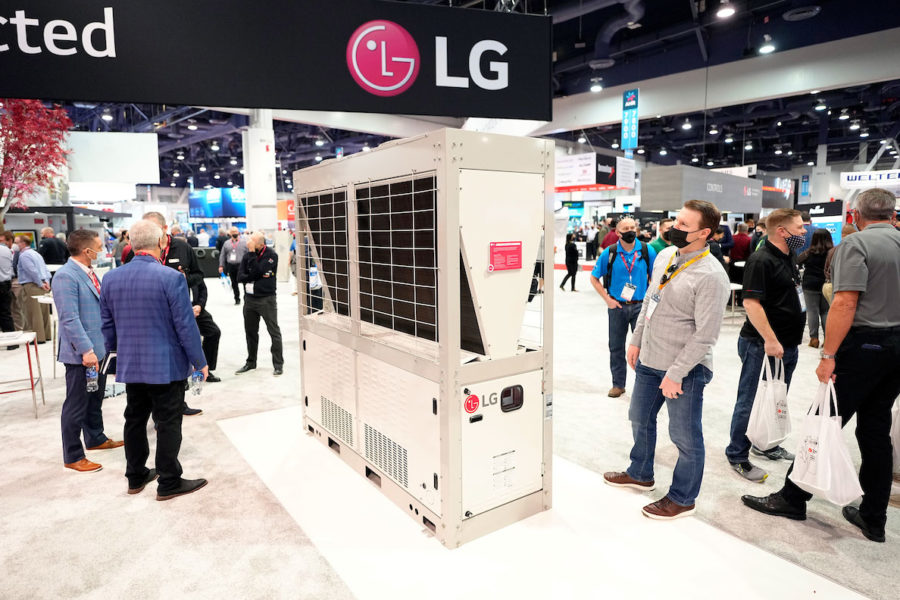
2022 AHR Expo. Photo courtesy of LG Electronics Air Conditioning Technologies USA
It’s been two years since the whole industry has gotten together, so we were really excited to see many innovative new products on the market, and this year’s expo did not disappoint.
Clearly indoor air quality was a huge topic everyone focused on at the show. The pandemic truly made us all much more aware of how pathogens travel through the air and how important indoor air quality is toward overall health and well-being. Key areas of discussion for the industry include: How do we treat outside air, and once the air is exchanged in the building, how do we keep that air clean?
We also saw new products that provide comfort in lower ambient temperature environments. In areas with cold winters like the Midwest, heat pumps had a reputation for years of being less capable, so it was viewed as difficult for these systems to act as a primary heating source. That has changed with products like LG’s inverter heat pump systems with LGRED° heating technology that provide powerful heating performance even in extremely low temperatures.
And, of course, there was a continued emphasis on digitalization and electrification. This isn’t just related to user-friendly control systems—which are great for streamlining operations—but also new smart technologies for monitoring the systems and assisting with service issues while increasing energy efficiency. This is especially true for large commercial operators.
Lastly, we saw a great deal of excitement. It’s been two years since we’ve seen all of our other colleagues, and it was great to be back under the same roof and meet face-to-face. There was so much curiosity among the attendees. I really enjoyed getting to walk the floor again and see all the new entrants and the offerings introduced this year.
As you mentioned, IAQ is top of mind, especially in the commercial market. How is the industry responding?
- 2022 AHR Expo. Photo courtesy of LG Electronics Air Conditioning Technologies USA
- 2022 AHR Expo. Photo courtesy of LG Electronics Air Conditioning Technologies USA
Of course there’s been a big move overall to improve filtration systems, especially in larger spaces. And while Covid may have been a catalyst, there is a growing awareness of how air exchanges and the ways air circulation and filtration can assist in improving indoor air quality and, ultimately, promote good health.
For LG in 2022 we’ve focused on expanding our capabilities for conditioning outside air with the innovation of our dedicated outdoor air system offerings (DOAS). LG’s DOAS units are designed to condition outside air more efficiently, for improved indoor air quality and comfort.
What does the future hold for electrification and digitalization?
Like most industries, the HVAC industry is going digital in a lot of new and exciting ways. That includes smart technologies for monitoring systems as well as remote control capabilities. We expanded the LG ThinQ® app to allow remote control of LG HVAC equipment in tandem with other LG home appliances and electronics. ThinQ can also learn your personal preferences to provide custom recommendations or even proactively alert of issues as they arise. With the full LG ecosystem, homeowners have the power to create a smarter, more comfortable home.
In terms of electrification, this goes hand-in-hand with the transition to more sustainable HVAC solutions. Maybe six or seven years ago, strategic electrification was a buzzword in the industry—everyone was talking about going green, but no one could quite define what that meant in terms of industry-wide standards. But now the technology is catching up with our ambitions, and we’re seeing a standardization for these types of metrics.
Can you expand on how electrification relates to environmental sustainability?
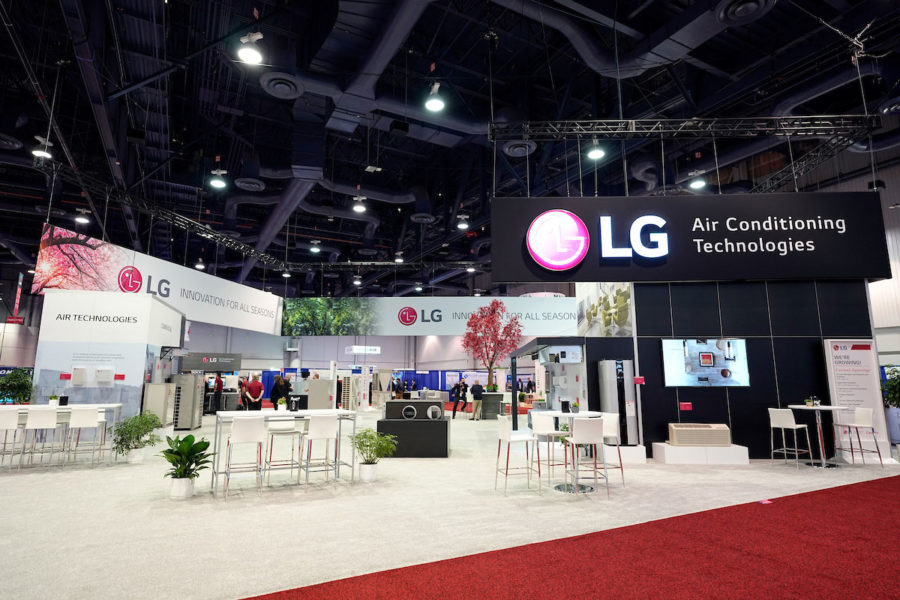
2022 AHR Expo. Photo courtesy of LG Electronics Air Conditioning Technologies USA
The goal of electrification within the HVAC market is to remove the reliance upon fossil fuels. As utilities increasingly source power from green energy sources, it’s our job in the HVAC industry to create specifications for products to run on clean energy. State and local regulations are also helping push us in the right direction.
Cities like Seattle and Sacramento are banning fossil fuels in new residential and commercial construction. At the same time you’re starting to see the implementation of HERS (Home Energy Rating Systems) within the residential market that measures building performance, so it’s important for our business to stay at the forefront of sustainability.
The move toward electrification has been reflected in the products we debuted at AHR Expo 2022. One of our newest offerings, the LG Inverter Scroll Heat Pump Chiller (ISHPC), utilizes inverter technology to provide hot or cold water for both comfort and process applications. The high heating, low ambient performance of the ISHPC means we can meet hot water heating requirements while supporting our carbon reduction strategy.
How is LG incorporating sustainable measures into its products and business model?
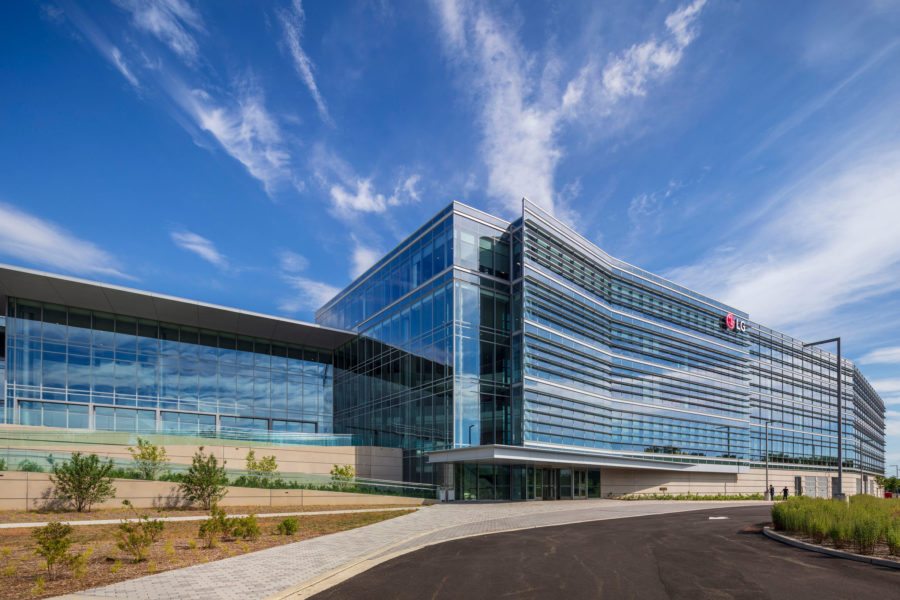
Photo courtesy of LG Electronics Air Conditioning Technologies USA
This is not just about LG Air Conditioning Technologies; this is about being a model of corporate responsibility for the entire globe. And that means putting your money where your mouth is, which is exactly what we’ve done—for example, with our new North American headquarters campus in Englewood Cliffs, New Jersey.
This LEED Platinum building received the prestigious 2021 USGBC Leadership Award as a showcase of environmentally friendly design. Through rooftop solar and highly efficient HVAC technology, the campus produces more energy than it consumes.
But we take it a step further by reexamining not only our processes and global footprint, but also how our finished products perform in the real world. This has been a huge priority and focus across all LG new products this year.
For example, at AHR 2022 we introduced two new split dedicated outdoor air systems (DOAS): the LG Split Rooftop DOAS and the LG Split Compact DOAS. The Split Compact DOAS provides heat pump heating without the need for natural gas piping, reducing the need for fossil fuel sources and providing more efficiency than electric resistance heating alternatives. Both received recognition as 2022 AHR Innovation Award finalists in the ventilation (LG Split Compact DOAS) and indoor air quality (LG Split Rooftop DOAS) categories.
We also incorporate variable speed/inverter technology across a range of products and offer a robust lineup of Variable Refrigerant Flow (VRF) products.
We don’t look at sustainability as a single entity—it’s a global responsibility in every action we take regardless of LG business unit. That’s from our CEO all the way down the line.

